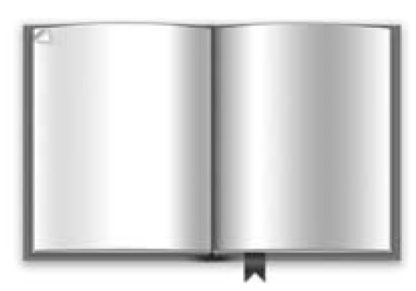What is a book? A landscape, a community, a refuge? Roberto Bolaño, in a late interview, said that a library is a symbol for everything good about human nature, the way a concentration camp is also a symbol for everything evil. Marcel Proust writes that authors may call their books Conclusions, but for the reader they are called Provocations: we want books to give us answers when all they can give us are desires.
The topic is a vast and mysterious one, but the only conversation to be had about it nowadays is the one about e-books: the ways reading a file on a Kindle or iPad is like reading a book and the ways it isn’t (Subconversation One: better; Subconversation Two: worse). Books—and e-books and blogs, too—have been written on the debate, positions staked out, and all the arguments made about what e-books are or aren’t or will be. But the arguments assume that we already know what the existing technology is, what e-books are trying to be (or trying not to be).
It is salutary in this context to consider the brief history of food science that Michael Pollan lays out in his influential manifesto In Defense of Food. Pollan describes the last century and a half of nutritionism, from Prout’s and Liebig’s discovery of the macronutrients (protein, carbohydrates, fat), through vitamins in the 1920s, to antioxidants and omega-3s and the rest today. Liebig thought he had unlocked the secrets of food, but children fed his formula failed to thrive, and sailors on his diet got scurvy. There was more to nutrition than was dreamt of in his philosophy. In general, every new discovery convinces the technocrats that now they know everything, but it never turns out that way: low-fat food actually makes us fat; margarine isn’t a better, healthier substitute for butter, because trans-fats will kill you. Beta-carotene, another miracle nutrient, fights cancer, but supplements isolated from the carrots the chemical is found in don’t cure cancer, and may even increase the risk. Our bodies can’t make full use of the lycopene in tomatoes without the olive oil Italians have always known we should cook tomatoes with. Food (as opposed to nutrients) or a cuisine (as opposed to ingredients) is always more complex than suspected.
These days we are more or less at the macronutrient stage of understanding books, aware of only three things a book is or does: you can buy a book, you can hold it, and it delivers information. Replicate those three features and you’re done. We’ve arguably discovered vitamins and minerals: the importance of page layout, illustrations, annotating, lending to friends, organizing a library, and...
You have reached your article limit
Sign up for a digital subscription and continue reading all new issues, plus our entire archives, for just $1.50/month.
Already a subscriber? Sign in





